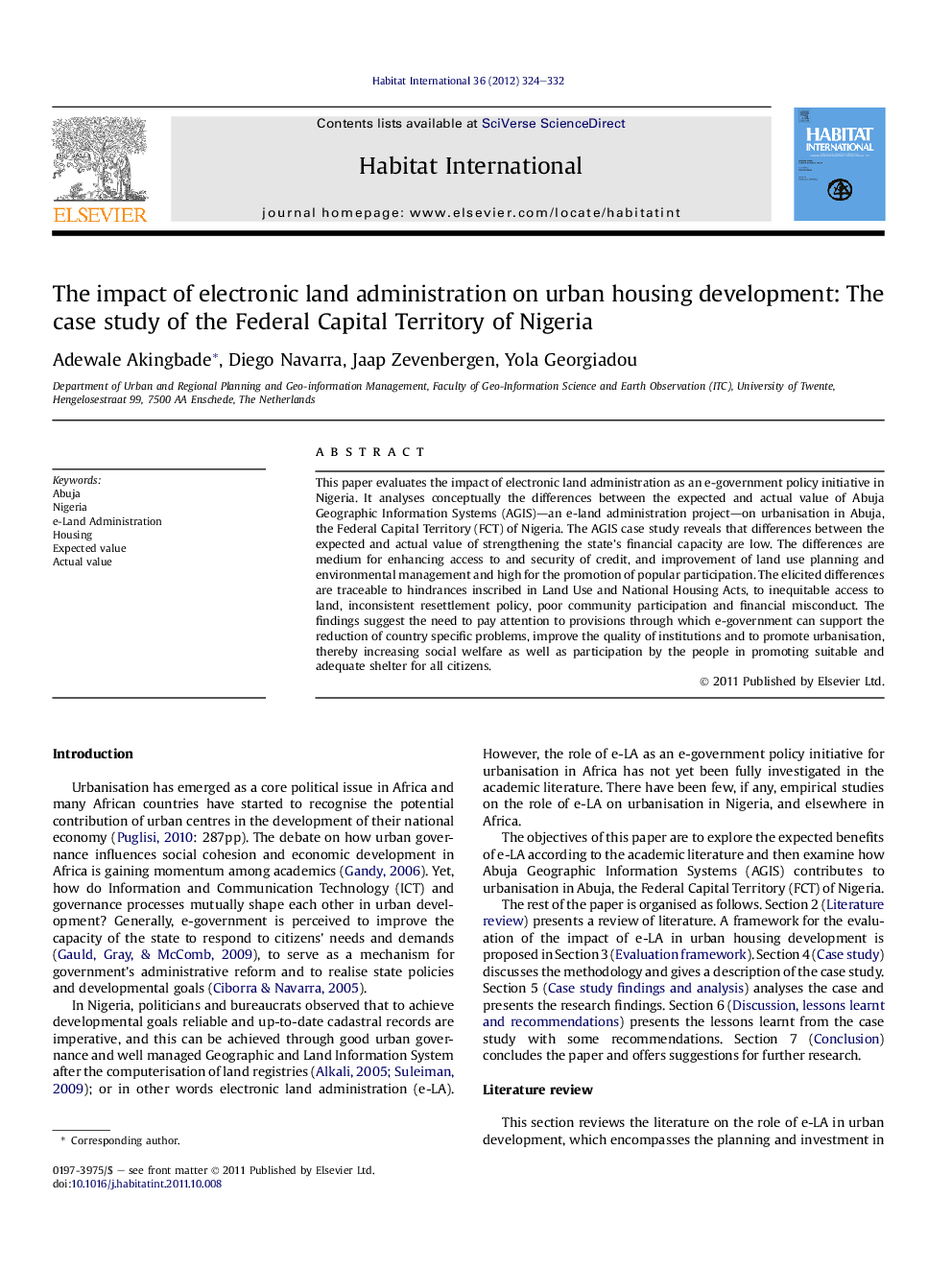| Article ID | Journal | Published Year | Pages | File Type |
|---|---|---|---|---|
| 1048053 | Habitat International | 2012 | 9 Pages |
This paper evaluates the impact of electronic land administration as an e-government policy initiative in Nigeria. It analyses conceptually the differences between the expected and actual value of Abuja Geographic Information Systems (AGIS)—an e-land administration project—on urbanisation in Abuja, the Federal Capital Territory (FCT) of Nigeria. The AGIS case study reveals that differences between the expected and actual value of strengthening the state’s financial capacity are low. The differences are medium for enhancing access to and security of credit, and improvement of land use planning and environmental management and high for the promotion of popular participation. The elicited differences are traceable to hindrances inscribed in Land Use and National Housing Acts, to inequitable access to land, inconsistent resettlement policy, poor community participation and financial misconduct. The findings suggest the need to pay attention to provisions through which e-government can support the reduction of country specific problems, improve the quality of institutions and to promote urbanisation, thereby increasing social welfare as well as participation by the people in promoting suitable and adequate shelter for all citizens.
► A framework for evaluation in e-Land Administration (e-LA) in urban housing. ► Empirical application and testing of the framework through a case study from Africa. ► Differences between expected and actual value of e-LA; lessening of the differences. ► An e-LA expected value in Abuja housing is strongly shaped by existing capacities. ► Consent requirement to alienate diminishes the value of property rights.
